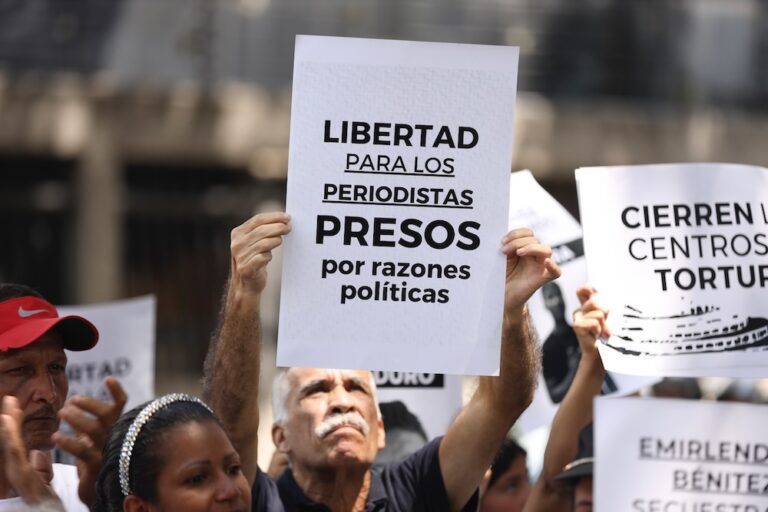In the face of authoritarian resurgence around the world, PEN America's Freedom to Write Index documents cases of writers and public intellectuals who have been unjustly locked up for their exercise of free expression. At least 277 of them (in 36 countries) were in jail last year.
This statement was originally published on pen.org on 13 April 2022.
Index documents brutal crackdowns in Myanmar and Iran; highlights writers worldwide languishing behind bars for decades
Myanmar – where an elected civilian government was unseated in a military coup on February 1, 2021 – joined China and Saudi Arabia as the top jailers of writers and public intellectuals in the world during 2021 in PEN America’s annual census of detained writers, the Freedom to Write Index. The literary and free expression group found that in 2021, at least 277 writers, academics, and public intellectuals in 36 countries – in all geographic regions of the world – were unjustly imprisoned or held in detention in connection with their writing or other exercise of free expression. This was a slight increase from 2020, when 273 individuals were counted behind bars, but the past two years, covering the period of the COVID-19 pandemic, both represent a significant increase from 2019, when the Freedom to Write Index documented just 238 cases. Publishing its third edition of the annual census, PEN America found that over half of these 277 writers were also jailed during both 2019 and 2020, and nearly one-fifth – at least 62 writers and public intellectuals – were serving sentences of 10 or more years in prison.
During 2021, Myanmar accounted for the single-largest increase of writers and public intellectuals newly jailed for exercising free expression, due to the military junta’s crackdown on influential voices such as writer Maung Thar Cho. Myanmar jailed at least 26 writers – a steep increase from 8 in 2020 – joining China and Saudi Arabia at the top of the list. Together, those three countries account for more than half of the total number of writers held behind bars in 2021.
Numbers also increased in Iran, which remains in its fourth-place position with 21 writers detained or imprisoned in 2021. The world became painfully aware of the devastating result of the Iranian government’s systemic practice of mistreating jailed writers just months ago, as dissident poet and 2021 PEN/Barbey Freedom to Write honoree Baktash Abin succumbed to COVID-19 behind bars after being denied timely medical treatment. The incarceration of other members of the Iranian Writers’ Association, such as writer-translator Arash Ganji, who was sentenced in 2020 to 11 years behind bars for translating a book, and the re-arrest of prominent dissident voices such as Narges Mohammadi, led to a total count of at least eight writers being jailed in Iran last year. In Belarus, which saw a dramatic increase in 2020 due to the repression that followed stolen elections in August of that year, the situation for free expression continued to deteriorate, with 10 writers and public intellectuals held behind bars, including political writer Valeria Kostyugova and philosopher Uladzimir Matskevich, both unjustly detained and targeted for their writing about Lukashenka’s rule. Numbers also remained steady in Egypt, Vietnam, India, and Eritrea, all of which have consistently ranked among the top ten worst jailers in the last three years. Turkey experienced a decrease in numbers of jailed writers, placing it as the fifth worst jailer. However, this figure does not capture other threats to free expression including burdensome trials, extradition attempts, and physical attacks facing writers in and exiled from Turkey.
“PEN America is sounding the alarm that the number of writers and public intellectuals detained or imprisoned in 2021 remains intolerably high, and we are particularly distressed to see Myanmar among the top three jailers of writers, in the wake of the junta’s ruthless crackdown on free expression and human rights,” said Karin Deutsch Karlekar, director of PEN America’s free expression at risk programs. “In countries across the globe, writers are being jailed for the ‘crime’ of exercising their right to peaceful expression and, in many cases, for using the power of the written word to counter authoritarianism and hold powerful leaders to account. This persistent global assault on the freedom to write robs writers of their pens and keyboards, and audiences of their words and thoughts, and demands the urgent attention of the international community.”
Suzanne Nossel, CEO of PEN America, said: “While the march of authoritarianism is on full and bloody display in Ukraine, a quieter war is being waged around the globe to silence dissent and distort narratives in ways that reify the power of the autocrat. In a digital age when words transcend borders, the insurgent power of the pen can be as threatening to repressive rulers as armed resistance. Writers speak not just for themselves, but also exemplify the power of lone individuals to withstand the forces that would extinguish their free will. At a time when we are witnessing the sore limitations of nations’ ability to turn the tide of rising repression around the world, we must redouble efforts to support the fearless independent voices who dare try to do so.”
In reviewing three years of data, PEN America also found that a staggering one-fifth of these 277 writers and public intellectuals were serving sentences of 10 or more years in prison for their writing and free expression. Writers such as Egyptian freelance writer and researcher Ismail Alexandrani and Russian historian Yury Dmitriev have been serving lengthy sentences of 10 and 15 years in prison, respectively, in retaliation for their work. At least 11 writers are serving life sentences, including Bahraini human rights blogger Abduljalil Al-Singace and Uyghur economist and blogger Ilham Tohti. Many writers who have been released from state custody still live under a constant threat of surveillance, harassment, and re-capture. At least a dozen writers have been detained multiple times over the past year for their writing, including Ugandan novelist Kakwenza Rukirabashaija and Cuban lyricist Maykel Castillo Pérez (Maykel Osorbo).
Among PEN America’s further key findings:
- As of April 2022, over 71 percent of writers counted in the 2021 Index remain in prison or jail; 17 percent are free from state custody but continue to face ongoing legal battles and conviction appeals, probationary restrictions on their ability to work and travel, and/or continued harassment from state or non-state actors. Only 11 percent have been released without conditions. The remaining 1 percent tragically died in state custody.
- Four writers and public intellectuals counted in the 2021 Index died in custody, including Iranian poet, filmmaker, and 2021 PEN/Barbey Freedom to Write honoree Baktash Abtin, who died of COVID-19 in January 2022.
- The majority of the writers and intellectuals included in the 2021 count were initially imprisoned or detained prior to 2021, or had faced previous detention or imprisonment. Of the 277 writers detained/imprisoned during 2021:
○ 71 percent had also been detained or imprisoned during 2020.
○ Nearly 53 percent had been detained or imprisoned during 2020 AND 2019; this represents cases of both long-term imprisonments and repeated arrests.
- The regional breakdown is nearly identical to 2020: Countries in the Asia-Pacific region, primarily China and Myanmar, jailed nearly 50 percent of all writers counted in the Index, 137 writers and public intellectuals; while countries in the Middle East and North Africa jailed nearly 30 percent of the 2021 total.
- As was documented in 2019 and 2020, charges related to national security – e.g., “membership in a banned group” or “subversion of state power” – are the prevailing legal justifications for imprisoning writers and public intellectuals; they were applied in 55 percent of cases during 2021.
- While the Taliban’s return to power in Afghanistan has not resulted in significant detentions of writers or public intellectuals in 2021, the situation for free expression has drastically deteriorated under Taliban control, and several writers were killed by the Taliban during the year.
- Spyware and digital surveillance technologies were found to have been used in the capture and imprisonment of writers and public intellectuals, including Emirati writer Ahmed Mansoor, Saudi writer-activist Loujain Al-Hathloul, and Qatar-based Kenyan blogger Malcolm Bidali. The families of imprisoned Indian poet P. Varavara Rao and murdered Saudi columnist Jamal Khashoggi were also subject to surveillance.
- Even when writers flee their countries to seek safety abroad, the threat of persecution from their governments may follow them. In 2021, the governments of Turkey, China, Pakistan, Belarus, and Iran engaged in harassment of and attacks against exiled writers, ranging from mounting legal charges and extradition attempts, to actual and attempted kidnapping, to physical threats to the writers and their family members.
PEN America’s Freedom to Write Index, now in its third year, includes case studies of detained writers, an overview of global trends, and regional and country specific breakdowns of threats to free expression. It complements the PEN America Writers at Risk Database, which catalogs writers, journalists, artists, academics, and public intellectuals under threat around the world. The database includes more than 780 cases–both current and historical–that PEN America has worked on from 1987 onwards.
The Freedom to Write Index is based on PEN America’s own internal case list, PEN America’s Artists at Risk Connection (ARC) case list, and the most recent PEN International Case List. Additionally, PEN America draws from press reports; information provided by PEN Centers around the world; reports from the families, lawyers, and friends of those in prison; and data from other international human rights, press freedom, academic freedom, and free expression organizations.
PEN America is deeply grateful to the John Templeton Foundation for its generous support of the Freedom to Write Index and Writers at Risk Database. We also extend our thanks to PEN International – both the Secretariat staff and the Writers in Prison Committee (WiPC) – for its extensive casework and collaboration on this project.



